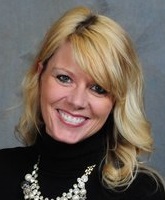Executive Order 192 Mandates COVID-19 Safety Protocols for NJ Employers
Nov 4, 2020 | Written by: | Share
Beginning on November 5, 2020, Governor Murphy’s Executive Order (EO) 192 (issued Oct. 28, 2020) will go into effect. The EO imposes mandatory protocols for employers to guard against the further spread of COVID-19.
To Whom Does EO 192 Apply?
EO 192 applies to every employer, business, non-profit, governmental or educational entity that requires or permits any part of its workforce to be physically present at a worksite to perform work, with the goal of protecting employees, customers, and all others who come into physical contact with the employers’ place of operation.
What is Required?
Daily Health Checks
Prior to each shift, employers must conduct daily health checks of each employee, which consists of “temperature screenings, visual symptom checking, self-assessment checklists and/or health questionnaires, consistent with CDC guidance….” Additionally, employers must adhere to the confidentiality requirements of the Americans With Disabilities Act (ADA) and the New Jersey Law Against Discrimination (NJLAD), as well as other applicable laws.
In order to comply, employees could be required to self-screen prior to arriving at work or employers could opt for off-site screening conducted by the employer, which would involve taking an employee’s temperature and assessing potential symptoms.
For employers who ask employees to self-screen prior to coming to work, a self-assessment tool is available at https://covid19.nj.gov/forms/self.
The CDC further advises that employees should not enter the workplace if any one of the following are applicable:
- Symptoms of COVID-19
- Fever equal to or higher than 100.4oF
- Under evaluation for COVID-19
- Diagnosed with COVID-19 and not yet cleared to discontinue isolation
Employers must develop a consistent and reliable system aimed at documenting the policy and procedures and enforcement of the protocols.
Social Distancing and Face Coverings
Employers must likewise require that all who are present in the workplace maintain six feet of distance from one another, especially where individuals will be present in a single room or in close proximity. If the performance of one’s duties will not allow for social distancing, employers must require that employees wear protective masks and install physical barriers between workstations.
Employers must require employees, customers, visitors, and other individuals entering the worksite to wear cloth or disposable face masks while on the premises, in accordance with Centers for Disease Control and Prevention (CDC) recommendations, except where the individual is under two years of age or where it is impracticable for an individual to wear a face mask, such as when the individual is eating or drinking, or where a service being provided by the employer cannot be performed on an individual who is wearing a mask.
Notably, an employer may require employees to produce medical documentation supporting a statement that the employee is unable to wear a face mask due to a disability. In the event an employee declines to wear a mask without legal justification, employers may deny entry to the worksite, except when doing so would violate state or federal law. Employers must also provide masks for employee use.
Employers may also deny entry to any visitor who declines to wear a face mask, except when doing so would violate state or federal law. In the event a visitor refuses to wear a mask due to a medical condition, the employer cannot require documentation of the medical condition.
Cleaning and Sanitization
Employers must provide effective sanitization materials (hand sanitizer or sanitizing wipes) to employees, customers, and visitors at no cost.
Employers should likewise promote and attempt to ensure that employees practice routine hand washing, and they should provide ample break time for this activity throughout the workday.
Employers must also routinely clean and disinfect all high-touch areas, and must ensure that cleaning procedures following a known or potential COVID-19 exposure are in compliance with CDC recommendations.
Leslie A. Parikh, Esq., is a partner with Gebhardt & Kiefer, PC. She practices primarily in the areas of employment law, civil rights litigation, municipal law, insurance defense, and the representation of public entities in both State and Federal Court. Contact Ms. Parikh at 908-735-5161 or via email.
If you have a suggestion for a future blog topic, please feel free to submit it via the Contact Us form.

